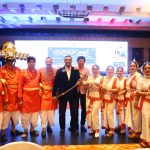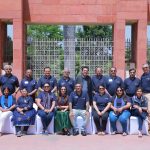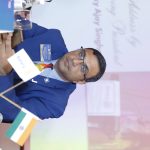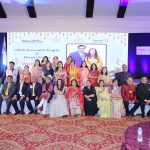THE ROTARY FOUNDATION

INTRODUCTION

The Foundation Is a not-for-profit corporation supported solely by voluntary contributions from rotary members and friends of the foundation who share Its vision of a better world. This support Is essential to make possible projects, funded with foundation grants, that bring sustainable improvement to communities in need.
THE HISTORY OF THE ROTARY FOUNDATION
At the 1917 convention, outgoing R.l. President Arch C. Klumph proposed to set up an endowment “for the purpose of doing good in the world.” In 1928, it was renamed “The Rotary Foundation,” and it became a distinct entity within Rotary International.
GROWTH OF FOUNDATION
In 1929, the Foundation made its first gift of $500 to the International Society for Crippled Children. The organization, created by Rotarian Edgar F. “Daddy” Allen, later grew into Easter Seals.
When Rotary founder Paul Harris died in 1947, contributions began pouring in to Rotary International, and the Paul Harris Memorial Fund was created to build the Foundation.
| EVOLUTION OF FOUNDATION PROGRAMMES | |
|---|---|
| 1947 | The Foundation established its first programmes, Fellowships for Advance Study, later known as Ambassadorial Scholarships. |
| 1965-66 | Three programmes were launched: Group Study Exchange, Awards for Technical Training, and Grants for Activities in Keeping with the Objective of The Rotary Foundation, which was later called Matching Grants. |
| 1978 | Rotary introduced the Health, Hunger and Humanity (3-H) Grants. The first 3-H Grant funded a project to immunize 6 million Philippine children against polio. |
| 1985 | The PolioPlus programmes was launched to eradicate polio worldwide. |
| 1987-88 | The first peace forums were held, leading to Rotary Peace Fellowships. |
| 2013 | New district, global, and packaged grants enable Rotarians around the world to respond to the world’s greatest needs. |
Since the first donation of $26.50 in 1917, the Foundation has received contributions totaling more than $1 billion.
PROGRAMMES OF THE ROTARY FOUNDATION
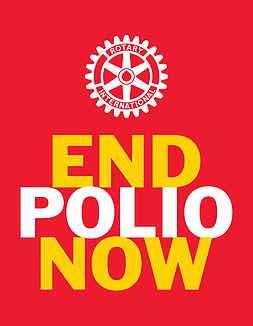
PolioPlus
Polio eradication is Rotary’s top philanthropic priority.
When Rotary launched the PolioPlus programme in 1985, there were more than 350,000 polio cases in over 125 countries. Since 1988, when Rotary began working with its partners in the Global Polio Eradication Initiative to immunize more than 2 billion children, the incidence of polio has decreased 99 percent. As of 2013, Rotary’s contributions to the global polio eradication effort totaled $1.2 billion. India was declared polio free in 2013.

Rotary Peace Fellowships
Rotary Peace Fellowships enable individuals to pursue a graduate degree in international relations, peace, conflict resolution, and related subjects, or a professional development certificate in peace and conflict studies at one of the six Rotary Peace Centers.
The Rotary Peace Fellowship is designed for professionals who have already worked in careers related to international relations or peace and conflict resolution and who are committed to community or international humanitarian service and working for peace.
The fellowship is not intended for recent college graduates with little to no relevant professional experience.
The Rotary Peace Center’s mission is to promote world peace by educating and empowering peace-builders through rigorous academic training, applied field experience, and global networking opportunities. Each year, up to 100 Rotary Peace Fellows are selected to receive full funding to earn either a professional development certificate in peace and conflict studies or a master’s degree in any of a range of disciplines related to peace and security. Through this program, Rotary Peace Fellows develop the skills they need to serve as leaders and catalysts for peace and conflict resolution both in their local communities and around the globe.
| Fellowship Programmes | Master Degree | Professional Development Certificate |
|---|---|---|
| Purpose | Empowering the leaders of tomorrow | Strengthening the leaders of today |
| Length of study | 15-22 months (varies by university) | 3 months |
| Rotary Peace Centers | 5 | 1 |
| Partner Universities | 1. Duke-University of North Carolina 2. International Christian University 3. University of Bradford 4. University of Queensland 5. Uppsala University |
Chulalongkorn University |
| Number of annual Fellowships | 50 maximum (10 per Rotary Peace Center) | 50 maximum (25 per session: January-April or June-August) |
| Field-based learning Opportunities | 2-3 months of practical internship during academic break | 2-3 weeks of field study incorporated into curriculum |
GRANTS
Rotary Foundation grants support Rotarians’ efforts to change lives and serve communities.
DISTRICT GRANTS
District grants are block grants that enable clubs and districts to address immediate needs in their communities and abroad. Districts may request up to 50 percent of their District Designated Fund for one grant annually. Districts manage and disburse these funds to support district and club sponsored activities, including vocational training teams, scholarships, humanitarian service projects, and cultural exchanges, provided they are aligned with the Foundation’s mission.
GLOBAL GRANTS
Global grants offer clubs and districts opportunities to participate in strategically focused, high-impact activities. These grants fund large scale international humanitarian projects, vocational training teams, and scholarships that have sustainable, measurable outcomes in one or more of Rotary’s areas of focus. Activities may be carried out individually or in combination-for example, one grant may support a vocational training team and a related humanitarian project.
Global grant projects must have a minimum total budget of $30,000.
This includes the World Fund award, which is based on a 100 percent match of District Designated Fund allocations or a 50 percent match of cash contributions from the sponsors. All global grants must be sponsored by two clubs or districts: a host partner in the country where the activity takes place and an international partner outside that country.
When planning a global grant project, sponsors should conduct a thorough needs assessment that explores the pressing concerns in the project location as well as the club and community resources available to address them.
PACKAGED GRANTS
Packaged grants support pre-designed projects developed by the Foundation and its strategic partners, which are organizations that work in one or more of Rotary’s areas of focus and can offer financial support, technical expertise, or advocacy. The Foundation and the strategic partner provide 100 percent of the funding; Rotarians implement the grant project. Details about packaged grant options and current strategic partners are available at www.rotary.org.






